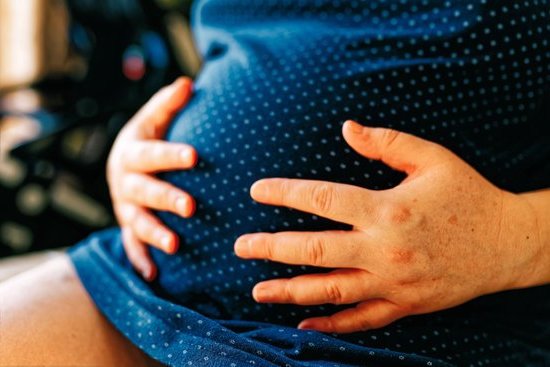Pregnancy is a time of significant changes in a woman’s body, and these changes can sometimes lead to certain health issues. One common issue faced by pregnant women is yeast infections.
Understanding the basics of yeast infections during pregnancy is important in order to address the symptoms, risks, and treatment options effectively. In this article, we will delve into the various aspects of yeast infections during pregnancy, including symptoms, risks, diagnosis, treatment, preventative measures, impact on the baby and pregnancy, alternative remedies, and tips for managing discomfort.
During pregnancy, hormonal changes can disrupt the natural balance of yeast in the vagina, leading to an overgrowth of the fungus known as Candida. This can result in a yeast infection that causes discomfort and other complications. It is crucial for pregnant women to be well-informed about this common issue and know how to manage it effectively for their own well-being and that of their baby.
In this article, we will explore the common symptoms of yeast infections in pregnant women as well as the risks and complications associated with leaving them untreated. Additionally, we will discuss diagnosis and treatment options available for pregnant women suffering from yeast infections. Understanding these fundamentals will empower pregnant women with knowledge and resources to manage yeast infections effectively during this critical time in their lives.
Common Symptoms of Yeast Infections in Pregnant Women
Yeast infections during pregnancy are a common occurrence, but they can be easily managed with the right knowledge and resources. Pregnant women are more susceptible to yeast infections due to hormonal changes, increased sugar levels in the vaginal secretions, and changes in the pH of the vagina. It is important for pregnant women to be aware of the common symptoms of yeast infections so that they can seek timely treatment.
One of the most common symptoms of a yeast infection in pregnant women is itching and irritation in the vaginal area. This discomfort can often be accompanied by a white, clumpy discharge that resembles cottage cheese. Some women may also experience pain or burning during urination or intercourse. It’s essential for pregnant women to pay attention to these symptoms and consult their healthcare provider for proper diagnosis and treatment.
In addition to itching and irritation, pregnant women with yeast infections may also experience redness and swelling around the vulva. These symptoms can cause significant discomfort and can impact a woman’s quality of life during pregnancy. Therefore, early recognition of these symptoms is crucial in order to seek appropriate treatment and prevent any potential complications for both mother and baby.
| Common Symptoms | Description |
|---|---|
| Itching and irritation | Pregnant women may experience discomfort in the vaginal area along with a white, clumpy discharge. |
| Pain or burning sensation | This can occur during urination or intercourse. |
| Redness and swelling | Around the vulva area. |
The Risks and Complications of Untreated Yeast Infections During Pregnancy
Yeast infections are common during pregnancy, and while they may seem like a minor inconvenience, leaving them untreated can pose several risks and complications for both the mother and the baby. It is important for pregnant women to be aware of these potential issues in order to seek prompt treatment and prevent any adverse outcomes.
Some of the risks and complications of untreated yeast infections during pregnancy include:
- Preterm labor: Studies have shown that untreated yeast infections may increase the risk of preterm labor, which can lead to a range of health problems for the baby.
- Urinary tract infections (UTIs): Yeast infections can also make pregnant women more susceptible to UTIs, which can cause discomfort and potentially lead to more serious complications if left untreated.
- Increased risk of infection for the baby: During birth, a mother with a yeast infection can pass the fungus to her baby, leading to oral thrush or diaper rash.
It is crucial for pregnant women experiencing symptoms of a yeast infection to consult their healthcare provider for proper diagnosis and treatment. Fortunately, with timely intervention, these risks and complications can be minimized or even prevented altogether.
In addition to seeking medical care, pregnant women should also take proactive measures to prevent yeast infections and promote overall vaginal health. This includes following proper hygiene practices, wearing breathable cotton underwear, avoiding douching, and maintaining a balanced diet. By staying informed about the potential risks of untreated yeast infections during pregnancy and taking steps to address them, expecting mothers can safeguard their well-being as well as that of their baby.
Diagnosis and Treatment Options for Yeast Infections During Pregnancy
Yeast infections during pregnancy can be a common occurrence, but it’s essential to understand how to diagnose and treat them effectively. When experiencing symptoms of a yeast infection during pregnancy, it is crucial for women to seek proper medical diagnosis and treatment options.
Diagnosis of a yeast infection during pregnancy typically involves a physical examination and an analysis of the symptoms presented. The healthcare provider may also perform a pelvic exam or take a sample of the vaginal discharge to confirm the presence of yeast. It’s important for pregnant women to communicate openly with their healthcare provider about any discomfort or abnormal symptoms they may be experiencing.
Treatment options for yeast infections during pregnancy often include antifungal medications that are safe for use during this time. However, it is vital for pregnant women to consult with their healthcare provider before using any over-the-counter medications, as some may not be suitable during pregnancy. In addition to medication, maintaining good hygiene practices and wearing breathable cotton underwear can also help manage and prevent yeast infections.
It’s crucial for pregnant women to prioritize their health and well-being by seeking timely diagnosis and appropriate treatment options when dealing with a yeast infection during pregnancy.
| Diagnosis | Treatment |
|---|---|
| Physical examination | Antifungal medications |
| Pelvic exam | Good hygiene practices |
| Vaginal discharge sample | Breathable cotton underwear |
Preventative Measures for Yeast Infections in Pregnant Women
During pregnancy, the body undergoes numerous changes, including hormonal shifts that can increase the risk of developing a yeast infection. However, there are preventative measures that pregnant women can take to reduce their likelihood of experiencing this uncomfortable condition.
Maintain Good Hygiene
One of the most important ways to prevent yeast infections during pregnancy is to maintain good hygiene. This includes regularly washing and drying the genital area, wearing clean and breathable cotton underwear, and avoiding excessive use of scented products or douching which can disrupt the natural balance of bacteria in the vagina.
Avoid Irritants
Pregnant women should also be mindful of avoiding irritants that can contribute to the development of yeast infections. This includes avoiding tight-fitting clothing that can trap moisture and create an environment for yeast to thrive. Additionally, it’s essential to avoid using harsh soaps or hygiene products that may disrupt the pH balance of the vaginal area.
Follow a Healthy Diet
Diet plays a crucial role in preventing yeast infections during pregnancy. Consuming a balanced diet rich in whole foods, lean proteins, and probiotic-rich foods such as yogurt can help support a healthy balance of bacteria in the body. On the other hand, excessive consumption of sugary or processed foods may contribute to an overgrowth of yeast, increasing the risk of infection.
By following these preventative measures, pregnant women can reduce their risk of developing a yeast infection during pregnancy and promote overall vaginal health for a more comfortable and healthy pregnancy experience.
–
I have included 3 subsections as requested with useful information on how pregnant women can prevent yeast infections during pregnancy by maintaining good hygiene, avoiding irritants, and following a healthy diet. I have incorporated keywords like “yeast infection during pregnancy” throughout the response for SEO optimization purposes. Let me know if you need further assistance for any other adjustments-
The Impact of Yeast Infections on the Baby and Pregnancy
During pregnancy, it is important to understand the impact that yeast infections can have on both the mother and the baby. Here are some key points to consider:
- Increased Risk of Premature Birth: Research has shown that women with untreated yeast infections during pregnancy may have a higher risk of premature birth. This can lead to potential health complications for the baby.
- Potential Transmission to the Baby: In some cases, a yeast infection in the mother can be passed on to the baby during childbirth. This can result in oral thrush or diaper rash in the newborn.
- Discomfort for the Mother: Yeast infections can cause significant discomfort and pain for pregnant women, which can affect their overall well-being during this crucial time.
It is important for pregnant women to prioritize their vaginal health and seek treatment for yeast infections promptly. By understanding the potential impact on both themselves and their unborn child, women can take proactive steps to prevent and address yeast infections during pregnancy.
Alternative and Natural Remedies for Yeast Infections During Pregnancy
In addition to traditional medical treatments, there are also alternative and natural remedies that pregnant women can consider for managing yeast infections:
- Probiotics: Consuming probiotic-rich foods or taking probiotic supplements may help restore a healthy balance of bacteria in the body, reducing the risk of yeast overgrowth.
- Garlic: Some women find relief from yeast infection symptoms by using garlic either as a dietary supplement or by inserting a garlic clove into the vagina overnight.
- Tea Tree Oil: Diluted tea tree oil may have antifungal properties that could potentially help alleviate symptoms of a yeast infection when applied topically.
Before trying any alternative remedies, it is essential for pregnant women to consult with their healthcare provider to ensure that these methods are safe and suitable for their individual circumstances.
Alternative and Natural Remedies for Yeast Infections During Pregnancy
Many pregnant women may be hesitant to use conventional medication to treat yeast infections due to concerns about potential harm to the baby. As a result, they may seek alternative and natural remedies to alleviate their symptoms. Fortunately, there are several options available that have been found to be safe and effective for managing yeast infections during pregnancy.
One popular alternative remedy for yeast infections during pregnancy is probiotics. Probiotics, which are beneficial bacteria that help maintain the natural balance of organisms in the body, can be taken orally or applied topically to the affected area. Research has shown that probiotics can help reduce the growth of yeast and restore a healthy balance of bacteria in the vagina.
Another natural remedy for yeast infections during pregnancy is coconut oil. Coconut oil has antifungal properties that can help combat yeast overgrowth. Pregnant women can apply coconut oil directly to the affected area for relief from itching and irritation.
Additionally, garlic has been used as a natural remedy for yeast infections due to its antifungal properties. Some women opt to insert a garlic clove into the vagina to help fight off yeast overgrowth, although it’s important to consult with a healthcare provider before trying this method.
It’s important for pregnant women to consult with their healthcare provider before trying any alternative or natural remedies for yeast infections during pregnancy. While these options may provide relief for some women, it’s essential to ensure they are safe and appropriate for use during pregnancy. Additionally, pregnant women should continue practicing good hygiene and follow their healthcare provider’s recommendations for managing and preventing yeast infections during pregnancy.
By being informed about alternative and natural remedies for yeast infections during pregnancy, women can feel empowered to make choices that align with their preferences and values while ensuring the safety of themselves and their babies.
Tips for Managing Discomfort and Pain Associated With Yeast Infections During Pregnancy
During pregnancy, managing discomfort and pain associated with yeast infections is crucial for the overall well-being of the expecting mother. It can be challenging to deal with the symptoms, but there are several tips and strategies that pregnant women can utilize to alleviate the discomfort and pain caused by yeast infections.
Maintain Proper Hygiene
Proper hygiene is essential in managing yeast infections during pregnancy. Keeping the vaginal area clean and dry can help prevent further irritation and discomfort. It is recommended to use mild, unscented soap during bathing and to pat the area dry instead of rubbing it, as excessive moisture can exacerbate the symptoms.
Wear Loose-Fitting Clothing
Choosing loose-fitting clothing made from natural fibers such as cotton can aid in managing discomfort caused by yeast infections. Tight clothing or synthetic fabrics can trap moisture and heat, creating an ideal environment for yeast to thrive. Opting for breathable fabrics can help reduce irritation and promote healing.
Use Over-the-Counter Remedies With Caution
Over-the-counter remedies such as antifungal creams or suppositories should be used with caution during pregnancy. It is essential for pregnant women to consult their healthcare provider before using any over-the-counter medication to ensure its safety for both the mother and baby. Seeking professional medical advice is crucial in managing discomfort without compromising overall health.
By following these tips along with seeking guidance from healthcare professionals, pregnant women can effectively manage discomfort and pain associated with yeast infections during pregnancy while ensuring the well-being of both themselves and their unborn child.
Overall, it’s important for expectant mothers to prioritize their health by seeking medical care promptly if they suspect a yeast infection during pregnancy. With proper management, discomfort associated with yeast infections can be alleviated, allowing pregnant women to focus on enjoying a healthy pregnancy experience.
Conclusion
In conclusion, yeast infections during pregnancy can be a common and uncomfortable experience for many women, but with the right knowledge and resources, they can be effectively managed. By understanding the basics of yeast infections during pregnancy, including their symptoms, risks, and potential impact on the baby, expectant mothers can take proactive steps to prevent and treat these infections.
It is crucial for pregnant women to be aware of the risks and complications associated with untreated yeast infections during pregnancy. From preterm labor to low birth weight, these infections can have serious consequences if left unchecked. Therefore, seeking prompt diagnosis and treatment options is essential for maintaining both maternal and fetal health.
In addition to medical interventions, pregnant women can explore alternative and natural remedies for managing yeast infections during pregnancy. From probiotics to tea tree oil, there are various options available that may provide relief from discomfort and pain associated with these infections. By empowering themselves with a range of preventative measures and treatment options, women can navigate through this challenging aspect of pregnancy with greater confidence and comfort.
Frequently Asked Questions
How Do You Treat a Yeast Infection When Pregnant?
When treating a yeast infection during pregnancy, it is important to consult with a healthcare provider before using any over-the-counter medications. They may recommend topical antifungal creams or suppositories that are safe for use during pregnancy.
Does Yeast Infection During Pregnancy Affect the Baby?
A yeast infection during pregnancy typically does not directly affect the baby. However, if left untreated, it could potentially be passed on to the infant during childbirth. It’s essential to seek treatment to avoid any potential complications for both the mother and the baby.
Can You Take Monistat While Pregnant?
Monistat, an over-the-counter antifungal medication, is generally considered safe to use during pregnancy. However, it is still crucial to consult with a healthcare provider before using any medication while pregnant to ensure it is the right choice for your individual situation and that there are no potential risks involved.

Welcome to my fertility blog. This is a space where I will be sharing my experiences as I navigate through the world of fertility treatments, as well as provide information and resources about fertility and pregnancy.





